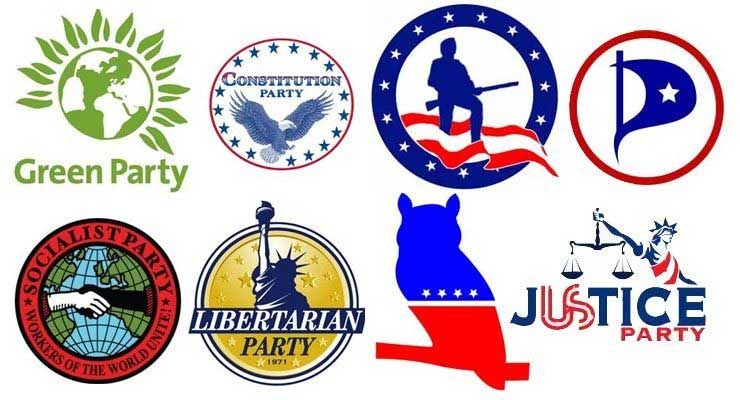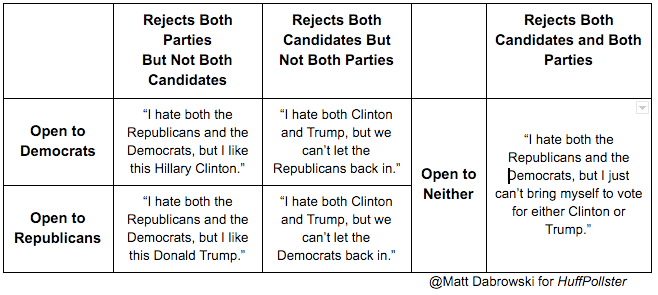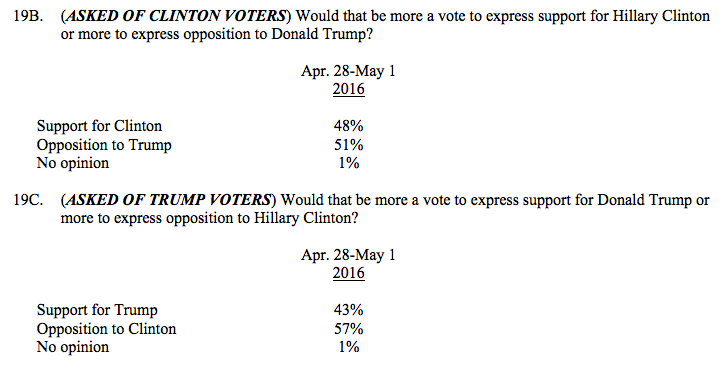As always, some of the best questions come from readers of the blog. “Why don’t third parties win US presidential elections?” came to us via email.
It is also timely with the recent discussion from Kristol and polling information from Data Targeting.
Polling Third Parties
In a traditional poll, pollsters may ask a question like, “Would you consider supporting a third party candidate? Yes or No?” Traditionally, because the question is asked like this, support for third parties is overstated, and the question has proven to be a poor predictor of voting behavior.
Another way to ask the question is in a horse race question like, “If the election were held today, who would vote for?” Because the answer has no ramifications, again support for third parties is overstated in polling.
So, if people tell pollster they support the idea of an independent candidate then why don’t they actually vote for them? Why do most people vote for their party’s nominee?
History of Third Parties in the US
| YEAR | PARTY | CANDIDATE | VOTE% | ELECTORAL VOTE | OUTCOME in Next Election |
| 1832 | Anti-Masonic | William Wirt | 7.8% | 7 | Endorsed Whig Candidate |
| 1848 | Free Soil | Martin Van Buren | 10.1 | 0 | 5% of the vote, absorbed by Republican Party |
| 1856 | Whig-American | Millard Fillmore | 21.5 | 8 | Dissolved |
| 1860 | Southern Democrat | John C. Breckinridge | 18.1 | 72 | Dissolved |
| 1860 | Constitutional Union | John Bell | 12.6 | 39 | Dissolved |
| 1892 | Populist | James B. Weaver | 8.5 | 22 | Absorbed by Democratic Party |
| 1912 | Progressive | Teddy Roosevelt | 27.5 | 88 | Returned to Republican Party |
| 1912 | Socialist | Eugene V. Debbs | 6.0 | 0 | Won 3% of the vote |
| 1924 | Progressive | Robert M. LaFollette | 16.6 | 13 | Returned to Republican Party |
| 1948 | States’ Rights | Strom Thurmond | 2.4 | 39 | Dissolved |
| 1948 | Progressive | Henry Wallace | 2.4 | 0 | Won 1.4% of the vote |
| 1968 | American Independent | George Wallace | 13.5 | 46 | Won 1.4% of the vote |
| 1980 | Independent | John Anderson | 6.6 | 0 | Dissolved |
| 1992 | Reform | H. Ross Perot | 18.9 | 0 | Won 8.4% of the vote |
| 1996 | Reform | H. Ross Perot | 8.4 | 0 | Did not run |
| 2000 | Reform | Ralph Nader | 2.7 | 0 | Ran Next election |
| 2004 | Green | Ralph Nader | 1.0 | 0 | — |
Source: http://www.thisnation.com/question/042.html
Research
The authoritative scholar on the issue is Steven Rosenstone at the University of Minnesota.
While there are structural barriers in place for third parties: ballot access, campaign finance laws, polarization of the party elites preventing cross-over third party validators, sparse media coverage, debate exclusion, and the lack of belief that a third party can win, there is a more fundamental way to look at this: the psychology of the voter.
Our political system is dominated by the two party system. Voters operate in primarily in this two party system and many voters take short cuts or cues provided by the parties to simplify their decision making. To step outside the two party system takes considerable effort.
Rosenstone developed a “Four Part Test for Third Party Support” and I believe it provides a framework to answer the question.
On average, for a voter to consider voting for the third party candidate, they have to reject 4 things. Not 2 of 4, but rather all 4. They have to reject both parties’ candidates and both parties, then and only then will they consider a third party. Then the voter has to find a third party candidate they consider to be legitimate and finally, vote for them. A tall task.
Additional Polling
We can see Rosenstone’s framework at work in a CNN poll in May 2016. When respondents were asked if their support for a candidate was an vote of support of opposition, we observe the following: (editor note: quite a sad commentary on our current choices.)
Conclusion
In part, this explains why Donald Trumps’ numbers have improved in the past 4 weeks. His support is growing from Republicans who rejected his primary campaign, but are “coming home” to support the party and/or reject Hillary Clinton/democratic nominee.
In part, this also explains, in part HRC’s soft numbers. The Democrats are still split between HRC and Sanders and have yet to coalesce around a candidate. We should expect the Democratic nominee’s numbers to improve after the voters move through Rosenstone’s framework.
As you can see, third parties have a difficult road ahead of them and the most likely path is not to win, but rather to prevent someone else from winning or the “spoiler” role.
PS – You may be interested in a newer post on this topic: So, You Want to Run As an Independent or Third-Party Candidate?



